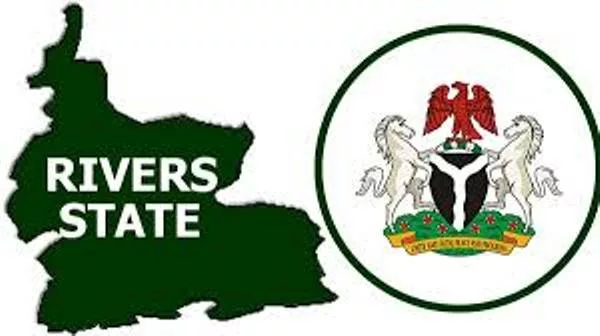
On October 30, Justice Joyce Abdulmalik of the Federal High Court in Abuja barred the Central Bank of Nigeria (CBN) from releasing monthly allocations to the Rivers State Government.
Rivers State, one of Nigeria’s oil-producing states, has been embroiled in political crises since the fallout between Siminalayi Fubara, the current Governor, and Nyesom Wike, his predecessor. The political tension between the two has led to both social and economic disruptions in the state.
Why the Court Barred Rivers’ Allocation
The barring of allocation to Rivers is not the first time a state has been denied federal funds. In 2004, then-President Olusegun Obasanjo ordered the stoppage of federal allocation to local governments in Lagos State after the state’s Governor, Bola Tinubu (now Nigeria’s current President), created additional Local Government Areas.
Although the stoppage was later annulled by a Supreme Court ruling, many, like former Vice President Yemi Osinbajo, who served under Tinubu as Attorney-General and Commissioner for Justice, argued that the action allowed the state to rethink its strategy on Internally Generated Revenue.
Unlike Lagos, the barring of Rivers from federal allocation, according to the court, was due to Rivers State receiving and spending allocations based on an “illegitimate” budget.
On December 13, 2023, Governor Fubara presented a budget of over N800 billion to five out of 32 lawmakers in the State House of Assembly. The budget presentation came two days after 27 lawmakers, including the Speaker, Martin Amaehwule—loyalists to Wike—defected from the Peoples’ Democratic Party (PDP), Fubara’s party, to the All Progressives Congress (APC).
Fubara-and-Nyesom-Wike-Before-Their-Breakup
To avert what would have been an impeachment proceeding, Fubara presented the budget at the Government House while the State Assembly House was being demolished, making proceedings there impossible.
However, Justice Abdulmalik ruled that this budget presentation was unconstitutional. Citing sections 91 and 96 of the 1999 constitution as amended, Justice Abdulmalik stated, “Any appropriation bill must pass through the constitutionally recognised House of Assembly, without which any budget implementation is unlawful.”
With this ruling—which Fubara has since appealed—the court has barred the CBN, the Accountant General of the Federation, and the state’s accounts at Zenith Bank and Access Bank that receive federal allocations from releasing any funds to Fubara.
Although the court decision has elicited condemnation from opposition politicians like Atiku Abubakar, who said the ruling could set the state on fire, and Peter Obi, who stated that it threatens the livelihoods of vulnerable citizens, some Nigerians argue that many states in Nigeria have become overly dependent on federal allocations, which discourages state governors from finding viable ways to generate sufficient revenue to run their states.
Can Rivers State Survive Without FG’s Monthly Allocation?
Most Nigerian states are heavily dependent on the Federal Account Allocation Committee (FAAC), which disburses the federal government’s monthly allocation to the three tiers of government.
According to the State of States 2024 Report compiled by BudgIT, Rivers State and Lagos are the only states that generate more than enough Internally Generated Revenue (IGR) to cover their operating expenses.
While states like Ogun, Anambra, Cross River, Kwara, Kaduna, and Edo generated enough IGR to cover at least 50 percent of their operating costs, states like Akwa Ibom, Imo, Taraba, Yobe, Bayelsa, and Jigawa required more than five times their IGR to meet operating expenses.
Judging from its financial record of 2023, Rivers State, one of Nigeria’s oil-producing states, has a fiscal viability that, if sustained, could allow it to survive without depending on monthly federal allocations.
While Rivers received a total of N339.53 billion from FAAC in 2023, the Treasure Base of the Nation increased its IGR by 6 percent from N191.87 billion in 2022 to N203.56 billion in 2023.
However, despite Rivers’ ability to generate revenue internally, the barring of federal allocation could make the proper implementation of its 2024 budget nearly impossible if it was imposed at the beginning of the year.
Fubara’s administration submitted a budget of N800 billion, an increase from the N544.7 billion of 2023. While the budget projected that Rivers would generate only N231 billion in 2024 (after generating N203 billion last year), it included a deficit of N208 billion, expected to be covered by loans, aid, and grants.
Although Rivers anticipated receiving N283 billion from FAAC to finance its budget, the state has already received over N328 billion from the federal government between Q1 and Q3 this year. Despite this increase in FAAC allocations, Rivers has continued to grow its IGR, exceeding its IGR projection by over N38 billion with N238 billion generated between Q1 and Q3, according to the State’s budget performance report.
While the budget performance report shows that, in the absence of FAAC, Rivers could cover most of its personnel costs, overhead costs, and other recurring expenses (excluding loan repayments), the ongoing political tension could pose a significant threat to the state’s fiscal stability.
Additionally, the state, which allocated 73 percent of its total spending to capital projects in 2023, might face a slowdown in infrastructural development without monthly federal allocations. This could, in the near future, erode the state’s potential for true economic viability.
“The current administration must prioritize investment in human capital development and address recent politically motivated violence that has threatened the state’s peace,” BudgIT noted in their report. “This has the potential to worsen security—an important component of the ease of doing business—and ultimately lead to capital flight.”